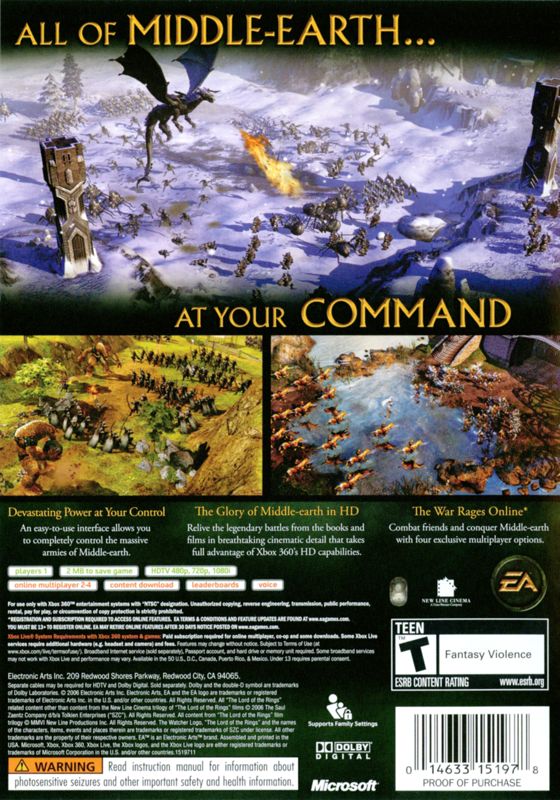

Shore was chosen by the filmmakers (who also considered the American composer James Horner and the Polish composer Wojciech Kilar ) when they found themselves temporarily-tracking parts of the assembled footage to pieces from his existing scores.

The score became the most successful of Shore's career, earning three Oscars, two Golden Globes, three Grammys, and several other nominations, and some of his themes (like the Shire theme) and songs earning great popularity. Throughout the composition, Shore has woven over 100 identified leitmotifs (or over 160, when considering the music of the Hobbit films), which are interrelated and categorized into groups that correspond to the Middle-earth cultures to which they relate, forming one of the greatest and most intricate collections of themes in the history of cinema. He made use of an immense ensemble including a large symphony orchestra (principally, the London Philharmonic Orchestra), multiple instrumental "bands", various choirs, and vocal and instrumental soloists, requiring an ensemble ranging from 230 to 400 musicians. Shore conceived the score as operatic and antiquated-sounding. Over 13 hours of the music (including various alternate takes) have been released across various formats. Shore wrote many hours of music for The Lord of the Rings, effectively scoring the entire film length. The scores are often considered to represent one of the greatest achievements in the history of film music in terms of length of the score, the size of the staged forces, the unusual instrumentation, the featured soloists, the multitude of musical styles and the number of recurring musical themes used.
#BATTLE FOR MIDDLE EARTH 2 DIGITAL DOWNLOAD SERIES#
The music of The Lord of the Rings film series was composed, orchestrated, conducted and produced by Howard Shore. large male choir (Fellowship of the Ring).


 0 kommentar(er)
0 kommentar(er)
